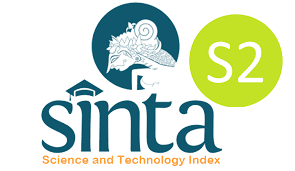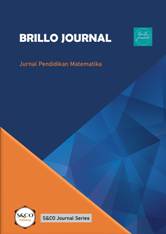Students Perceived Quality of a Self-Created Mathematics Game-Based Materials
DOI:
https://doi.org/10.56773/bj.v2i1.22Keywords:
Creativity, Game-based materials, Prior Knowledge, Problem posing skills, Rubric Scoring guidelinesAbstract
This study determined the quality of games students perceived for the game-based materials they develop after they experience playing a mathematics gameboard. The participants in this study were 88 students in 11th-grade Senior High School composed of 40 students in Sohoton General Academic Strand and 48 students in Kanlanuk Technical-Vocational Livelihood, selected through convenience non-random sampling. Through created games by students, it removed the presence of boredom that improved their performance. It impaired other competencies such as retention and automaticity of information from long-term memory. Moreover, students have developed the competitive, cooperative, and meaningful characteristics of the games, which was considered helpful in improving their knowledge based on how they perceived its' characteristics are important to contain in the game, and their confidence to participate in the lessons. Results from the classical item and test analysis spreadsheet revealed that the prior knowledge of the students increased after the interventions were made and implemented. The characteristics of the game were considered helpful to improve students’ knowledge and confidence in the lessons. These results have implications for in-depth study and analysis to have conclusive results regarding the influence of the intervention in enhancing students’ creativity.
References
Ak, O. (2012). A game scale to evaluate educational computer games. Procedia-Social and Behavioral Sciences, 46, 2477-2481. https://doi.org/10.1016/j.sbspro.2012.05.506
Asfaroh, H., & Ekawati, R. (2019). Students mathematical connection in problem posing. MATHEdunesa, 8(2), 163-168.
Atxurra, C., Villardón-Gallego, L., & Calvete, E. (2015). Design and validation of the cooperative learning application scale (CLAS). Revista de Psicodidáctica, 20(2), 339-357. https://doi.org/10.1387/RevPsicodidact.11917
Becker, K. (2017). Digital game-based learning: learning with games. In Choosing and using digital games in the classroom (pp. 25-61). Springer, Cham. https://doi.org/10.1007/978-3-319-12223-6_2
Blunt, R. (2009). Do Serious Games Work? Results from Three Studies. ELearn, 1. https://doi.org/10.1145/1661377.1661378
Brown, M., Brown, P., & Bibby, T. (2008). “I would rather die”: Reasons given by 16-year-olds for not continuing their study of mathematics. Research in mathematics education, 10(1), 3-18. https://doi.org/10.1080/14794800801915814
Brown, S.I., & Walter, M.I. (2005). The art of problem posing. Psychology Press.
Cavalho, J. C. Q. D., Beltramini, L. M., & Bossolan, N. R. S. (2019). Using a board game to teach protein synthesis to high school students. Journal of Biological Education, 53(2), 205-216. https://doi.org/10.1080/00219266.2018.1469532
Cooper, P. A. (1993). Paradigm Shifts in Designed Instruction: From Behaviorism to Cognitivism to Constructivism. Educational Technology, 33(5), 12 -19.
Crespo, S., & Sinclair, N. (2008). What makes a problem mathematically interesting? Inviting prospective teachers to pose better problems. Journal of Mathematics Teacher Education, 11(5), 395-415. https://doi.org/10.1007/s10857-008-9081-0
Department of Education Republic of the Philippines. (2008). DepED Memorandum No.270 s.2008. https://www.deped.gov.ph/wp-content/uploads/2018/10/DM_s2008_270.pdf.
Dewey, J. (1916). Democracy and Education: An Introduction to the Philosophy of Education. Macmillan.
Fischer, J. P., Vilette, B., Joffredo-Lebrun, S., Morellato, M., Le Normand, C., Scheibling-Seve, C., & Richard, J. F. (2019). Should we continue to teach standard written algorithms for the arithmetical operations? The example of subtraction. Educational Studies in Mathematics, 101(1), 105-121. https://doi.org/10.1007/s10649-019-09884-9
Lazarides, R., & Buchholz, J. (2019). Student-Perceived Teaching Quality: How is it Related to Different Achievement Emotions in Mathematics Classrooms?. Learning and Instruction, 61, 45-59. https://doi.org/10.1016/j.learninstruc.2019.01.001
Menesini, E., Tassi, F., & Nocentini, A. (2018). The competitive attitude scale (CAS): A multidimensional measure of competitiveness in adolescence. J. Psychol. Clin. Psychiatry, 9(3), 240-244.
Ojose, B. (2008). Applying Piaget's Theory of Cognitive Development to Mathematics Instruction. The Mathematics Educator, 18(1), 26-30.
Piaget, J. (1971). Biology and Knowledge: An essay on the relations between organic regulations and cognitive processes. University of Chicago Press
Piaget, J. (1980). Adaptation and Intelligence: Organic selection and phenocopy. University of Chicago Press
Riley-Tillman, T. C., Burns, M. K., & Kilgus, S. P. (2020). Evaluating educational interventions: Single-case design for measuring response to intervention. Guilford Press.
Robinson, R. J. (2004). The History of Human Reason. Prometheus Research Group.
Saad, M. (2014). Information and Communication Technology in Building Progressive Teachers' Knowledge Base: Cohort of Secondary Mathematics Pre-Service Teachers in Lebanon. [Doctoral Dissertation, Universite Saint-Joseph]. https://doi.org/10.13140/RG.2.2.22624.69122
Shafie, N., Shahdan, T. N. T., & Liew, M. S. (2010). Mastery Learning Assessment Model (MLAM) in teaching and learning mathematics. Procedia-Social and Behavioral Sciences, 8, 294-298. https://doi.org/10.1016/j.sbspro.2010.12.040
Sousa, M. J., & Rocha, Á. (2019). Leadership styles and skills developed through game-based learning. Journal of Business Research, 94, 360-366. https://doi.org/10.1016/j.jbusres.2018.01.057
Spooren, P., Mortelmans, D., & Denekens, J. (2007). Student evaluation of teaching quality in higher education: development of an instrument based on 10 Likert‐scales. Assessment & Evaluation in Higher Education, 32(6), 667-679. https://doi.org/10.1080/02602930601117191
Von Glasersfeld, E. (1987). Learning as a Constructive Activity, Problems of Representation in the Teaching and Learning of Mathematics. In Proceedings of the 5th annual meeting of the North American group of psychology in mathematics education (pp. 41-101). Montreal.
Vygotsky, L. S., & Cole, M. (1978). Mind in society: Development of Higher Psychological Processes. Harvard University Press.
Downloads
Published
How to Cite
Issue
Section
License
Copyright (c) 2022 Brillo Journal

This work is licensed under a Creative Commons Attribution 4.0 International License.
The authors agree that this article remains permanently open access under the terms of the Creative Commons Attribution 4.0 International License






